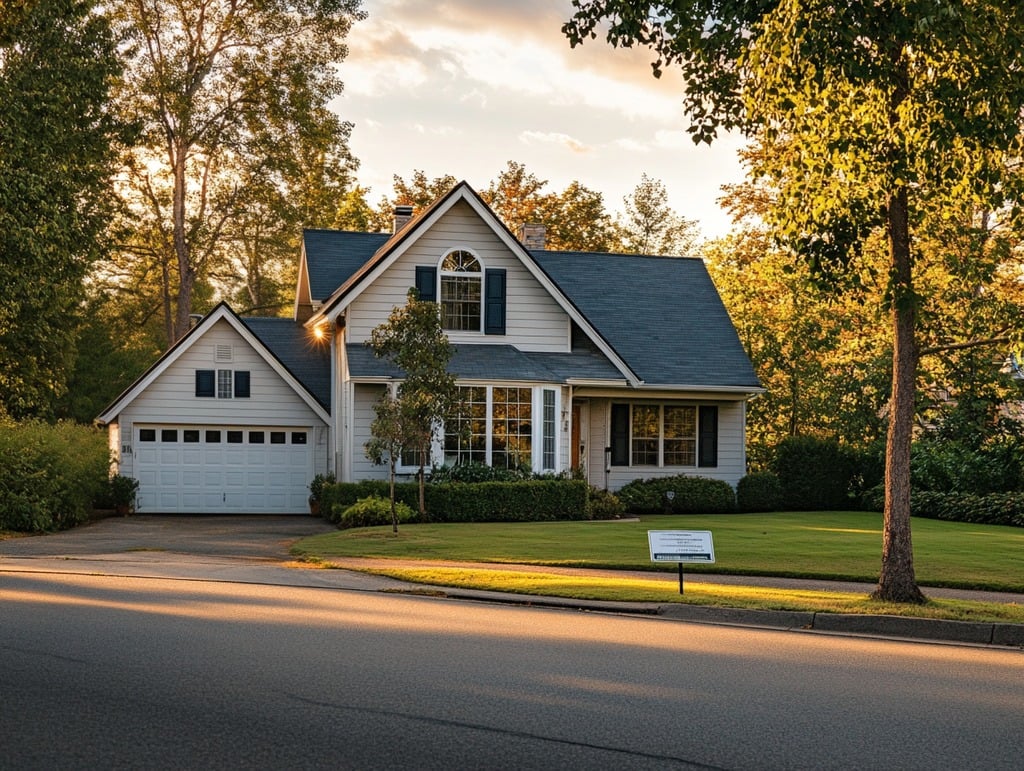If you’re a homeowner sitting on some decent equity, you’ve probably wondered, “Can I use this to buy another property?” The short answer is, yes, you absolutely can. But, like most things in the financial world, it’s not that simple. Using home equity to purchase another property can be a great way to leverage your assets for real estate investment, but it comes with risks and responsibilities.
In this post, we’ll break down everything you need to know—from the benefits and risks to the specific methods you can use to tap into your home equity for that next big property purchase.
What Is Home Equity, Anyway?
Before we dive in, let’s get on the same page. Home equity is the difference between your home’s current market value and the amount you still owe on your mortgage. So, if your home is worth $400,000 and you owe $200,000, your equity is $200,000.
The beauty of home equity is that it’s essentially untapped money. As you pay down your mortgage—or if your home’s value increases over time—that equity grows. You can use it as leverage for other financial ventures, like buying an additional property.
Methods to Use Home Equity for Buying Another Property
There are a few different ways to tap into your home equity when you’re looking to purchase a second property. Each has its pros and cons, so it’s important to understand how each works before jumping in.
1. Home Equity Loan
A home equity loan is often referred to as a “second mortgage.” Here’s how it works:
- How it works: You borrow a lump sum of money based on the equity in your home, and then pay it back with fixed monthly payments over a set term (usually 5-30 years).
- Interest rates: Fixed interest rates, typically lower than personal loans or credit cards.
- Pros: Predictable payments, tax-deductible interest (in some cases), and a lower interest rate than many other forms of borrowing.
- Cons: You’re taking on a second mortgage, which increases your monthly obligations.
2. Home Equity Line of Credit (HELOC)
A HELOC works more like a credit card, offering flexibility rather than a lump sum.
- How it works: You get a revolving line of credit based on your home equity, and you can borrow and repay as needed during a “draw period,” which is typically 5-10 years. After that, you enter the repayment phase, where you start paying off what you’ve borrowed.
- Interest rates: Variable interest rates, which means your monthly payments can fluctuate.
- Pros: You borrow only what you need, when you need it, and you can use it for anything—not just the purchase of a new property.
- Cons: Variable rates mean your payments can increase unexpectedly, and you’ll need strong financial discipline to avoid over-borrowing.
3. Cash-Out Refinance
A cash-out refinance replaces your current mortgage with a new, larger one, and you get the difference between the two as cash.
- How it works: Say you owe $200,000 on a $400,000 home. You refinance for $300,000, pay off the original $200,000 mortgage, and pocket the remaining $100,000.
- Interest rates: Typically, these have lower interest rates compared to home equity loans or HELOCs, since you’re refinancing your entire mortgage.
- Pros: You can consolidate your mortgage and access equity at potentially lower rates.
- Cons: Extends the life of your mortgage, and closing costs can be high.
The Benefits of Using Home Equity for Another Property
There are some undeniable perks to using your home equity to finance another property:
1. Lower Interest Rates
Compared to personal loans or unsecured debt, home equity loans and HELOCs typically come with lower interest rates, because your home is the collateral.
2. No Need for Large Savings
If you’ve built up substantial equity in your home, you can use that to cover a down payment or even pay for a second property outright, without having to save up a large sum of cash.
3. Potential for Rental Income
If you’re purchasing a rental property, the income generated from renters could help cover your mortgage payments, allowing you to use equity to build wealth.
4. Portfolio Diversification
By purchasing additional real estate, you’re diversifying your financial portfolio. Real estate can offer stability, especially if the stock market is volatile.
The Risks to Consider
Before you rush into using your home equity, there are some risks to keep in mind:
1. Your Home is on the Line
Anytime you borrow against your home’s equity, you’re putting your house at risk. If you fail to make payments, you could face foreclosure.
2. Debt Load Increases
Taking on additional loans means more monthly payments, which could strain your budget, especially if you experience financial hardships.
3. Variable Interest Rates
If you opt for a HELOC, be aware that variable rates can cause your payments to increase over time, which might make it harder to manage your finances.
4. Property Value Fluctuations
Real estate values can go up and down. If property values drop, you could end up owing more on your loans than your property is worth—creating a situation where you’re “underwater” on your mortgages.
Is This a Smart Move for You?
Not everyone should use home equity to buy another property, but it can be a good move for the right person. Consider these questions before making a decision:
- Are you financially stable? – If you’re barely scraping by, taking on more debt might not be the best choice.
- Do you have a solid plan for the new property? – Whether it’s a rental or a vacation home, make sure it fits into your long-term financial goals.
- Have you consulted with a financial advisor? – A professional can help you assess the risks and make sure you’re making a sound financial decision.
FAQs
Q1. Can I use home equity to buy a rental property?
A. Yes, using home equity to finance a rental property is a common strategy. Rental income can help cover mortgage payments, making it a potential wealth-building tool.
Q2. What’s the difference between a home equity loan and a HELOC?
A. A home equity loan gives you a lump sum with fixed payments, while a HELOC is a revolving line of credit with variable interest rates.
Q3. Can I use my home equity for a down payment on another house?
A. Yes, many homeowners use home equity to cover the down payment on a second property.
Wrapping It Up
So, can you use home equity to purchase another property? Absolutely! It’s a powerful financial tool that can open doors to more investment opportunities. However, like any investment, it’s essential to weigh the benefits against the risks and ensure you’re in a solid financial position before diving in. By understanding the different ways to tap into your home equity, you’ll be better equipped to make a decision that suits your financial goals.
If you’re ready to explore using your home equity for real estate investments, be sure to consult a financial advisor who can help guide you through the process.







